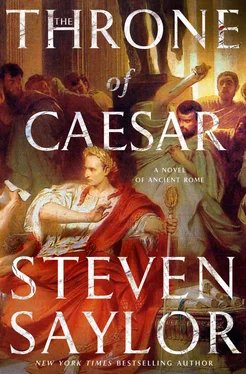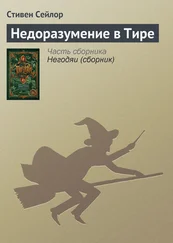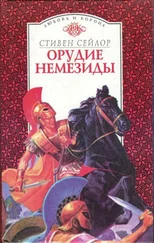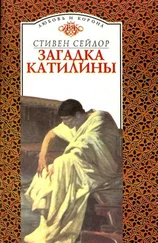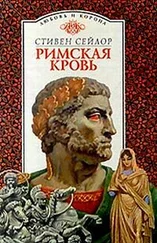Стивен Сейлор - The Throne of Caesar
Здесь есть возможность читать онлайн «Стивен Сейлор - The Throne of Caesar» весь текст электронной книги совершенно бесплатно (целиком полную версию без сокращений). В некоторых случаях можно слушать аудио, скачать через торрент в формате fb2 и присутствует краткое содержание. Год выпуска: 2018, Издательство: St. Martin's Press, Жанр: Исторический детектив, на английском языке. Описание произведения, (предисловие) а так же отзывы посетителей доступны на портале библиотеки ЛибКат.
- Название:The Throne of Caesar
- Автор:
- Издательство:St. Martin's Press
- Жанр:
- Год:2018
- ISBN:нет данных
- Рейтинг книги:5 / 5. Голосов: 1
-
Избранное:Добавить в избранное
- Отзывы:
-
Ваша оценка:
- 100
- 1
- 2
- 3
- 4
- 5
The Throne of Caesar: краткое содержание, описание и аннотация
Предлагаем к чтению аннотацию, описание, краткое содержание или предисловие (зависит от того, что написал сам автор книги «The Throne of Caesar»). Если вы не нашли необходимую информацию о книге — напишите в комментариях, мы постараемся отыскать её.
The Throne of Caesar — читать онлайн бесплатно полную книгу (весь текст) целиком
Ниже представлен текст книги, разбитый по страницам. Система сохранения места последней прочитанной страницы, позволяет с удобством читать онлайн бесплатно книгу «The Throne of Caesar», без необходимости каждый раз заново искать на чём Вы остановились. Поставьте закладку, и сможете в любой момент перейти на страницу, на которой закончили чтение.
Интервал:
Закладка:
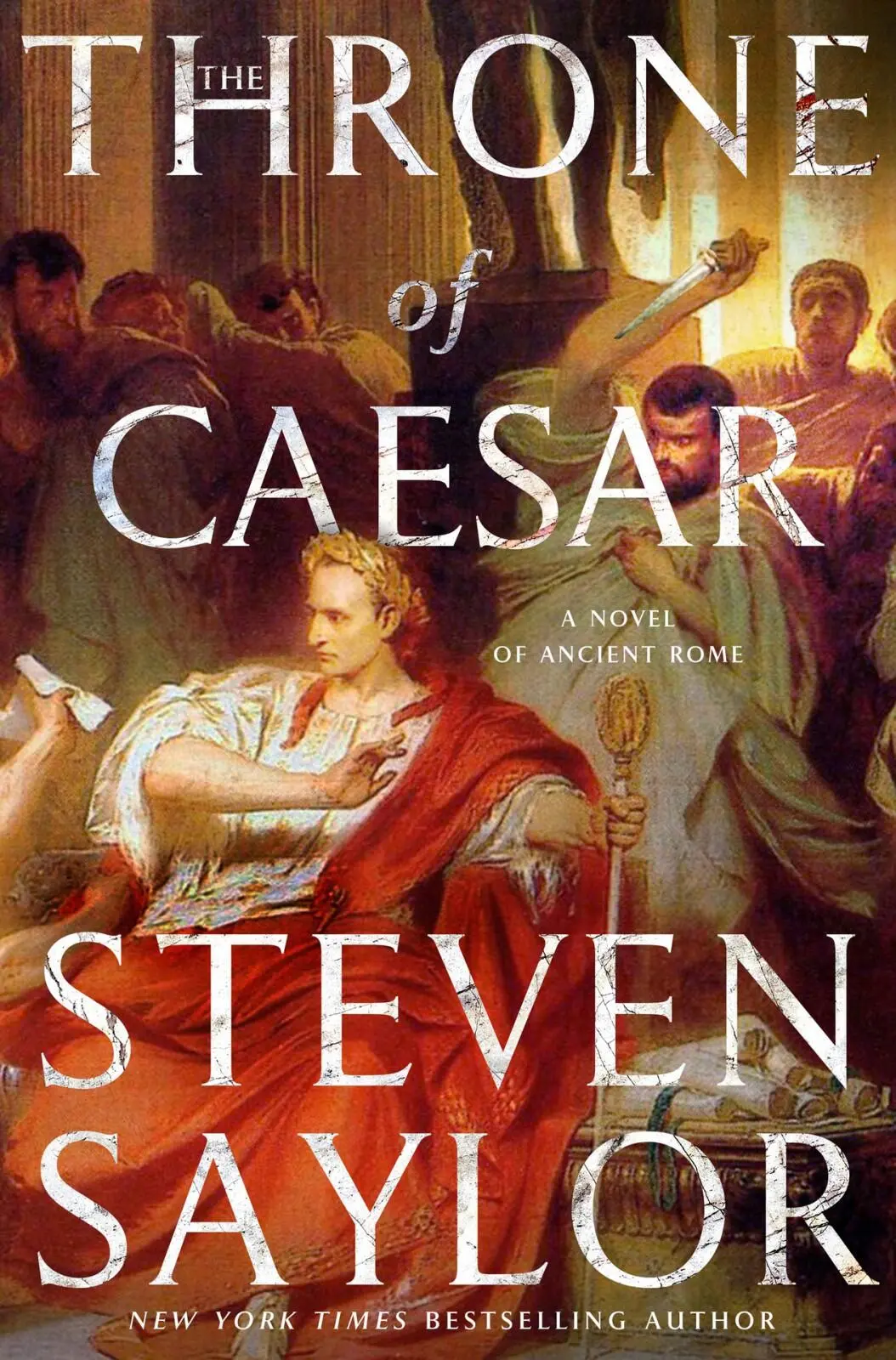

Begin Reading
Table of Contents
About the Author
Copyright Page
Thank you for buying this
St. Martin’s Press ebook.
To receive special offers, bonus content,
and info on new releases and other great reads,
sign up for our newsletters.

Or visit us online at
us.macmillan.com/newslettersignup
For email updates on the author, click here .
The author and publisher have provided this e-book to you for your personal use only. You may not make this e-book publicly available in any way. Copyright infringement is against the law. If you believe the copy of this e-book you are reading infringes on the author’s copyright, please notify the publisher at: us.macmillanusa.com/piracy .
To Rick, there from the beginning
The primary and the most beautiful quality of Nature is motion, that agitates Her without ceasing—but this motion is simply a perpetual sequence of crimes, perpetuated by means of crimes alone; the person who most resembles Her—and therefore the most perfect being—necessarily will be the one whose most active agitation will become the cause of many crimes …
—DONATIEN ALPHONSE FRANÇOIS, MARQUIS DE SADE
Justine, ou les Malheurs de la vertu
A world without people in it would be better.
—LAWRENCE DURRELL
Sappho: A Play in Verse
DAY ONE: MARCH 10
I
Once upon a time, a young slave came to fetch me on a warm spring morning. That was the first time I met Tiro.
Many years later, he came to fetch me again. But now he was a freedman, no longer a slave. The month was Martius, and the morning was quite chilly. And we were both much older.
Just how old was Tiro? My head was muddled by last night’s wine, but not so muddled that I couldn’t do the math. Tiro was seven years younger than I. That made him … fifty-nine. Tiro—nearly sixty! How was that possible? Could thirty-six years have passed since the first time he came to my door?
On that occasion, Tiro was still a slave, though a very well-educated one. He was the private secretary and right-hand man of his master, an obscure young advocate by the name of Cicero who was just starting his career in Rome. All these years later, everyone in Rome knew of Cicero. He was as famous as Cato or Pompey (and still alive, which they were not). Cicero was almost as famous as our esteemed dictator. Almost, I say, because no one could ever be as famous as Caesar. Or as powerful. Or as rich .
“There was a dictator ruling Rome on that occasion, too,” I muttered to myself.
“What’s that, Gordianus?” asked Tiro, who had followed me through the atrium, down a dim hallway, and into the garden at the center of the house. Nothing was blooming yet, but patches of greenery shimmered in the morning sunlight. Crouching by the small fishpond, Bast—the latest in a long line of cats to bear that name—stared up at a bird that sang a pleasant song from a safe perch on a roof tile. I felt the faintest breath of spring in the chilly morning air.
I wrapped my cloak around me, sat on a wooden bench that caught the morning sunlight, and leaned back against one of the columns of the peristyle. Tiro sat on a bench nearby, facing me. I took a good look at him. He had been a handsome youth. He was still handsome, despite his years. Now, as then, his eyes were his most arresting feature. They were an unusual color, a pale shade of lavender, made all the more striking by the frame of his meticulously barbered white curls.
“I was just saying, Tiro…” I rubbed my temples, trying to soothe the stabbing pain in my head. “There was a dictator ruling Rome on that occasion, too. How old were you then?”
“When?”
“The first time I met you.”
“Oh, let me think. I must have been … twenty-three? Yes, that’s right. Cicero was twenty-six.”
“And I was thirty. I was recalling that occasion. It wasn’t at this house, of course. I was still living in that ramshackle place I inherited from my father, over on the Esquiline Hill, not here on the Palatine. And it was a warm day—the month was Maius, wasn’t it? Then, as now, I answered the knock at the door myself—something my wife insists I should never do, since we have a slave for just that purpose. And … seeing you today at my front door … I had that feeling…”
“A feeling?”
“Oh, you know—we all feel it now and again—that uncanny sensation that one has experienced something before. A shivery feeling.”
“Ah, yes, I know the phenomenon. ”
“One experiences it less as one grows older. I wonder why that is? And I wonder why we have no word for it in Latin. Perhaps you or Cicero should invent one. ‘Already-seen,’ or some other compound. Or borrow a word from some other language. The Etruscans had a word for it, I think.”
“Did they?” Tiro raised an eyebrow. There was a mischievous glint in his lavender eyes.
“Yes, it will come to me. Or was it the Carthaginians? A pity we made Punic a dead language before plundering all the useful words. Oh, but my head is such a muddle this morning.”
“Because you drank too much last night.”
I looked at him askance. “Why do you say that?”
“The way you look, the way you walk. The way you sat down and leaned back against that column so gingerly, as if that thing on your shoulders were an egg that might crack.”
It was true. My temples rolled with thunder. Spidery traces of lightning flashed and vanished just beyond the corners of my eyes. Last night’s wine was to blame.
Tiro laughed. “You had a hangover on that morning, all those many years ago.”
“Did I?”
“Oh, yes. I remember, because you taught me the cure for a hangover.”
“I did? What was it? I could use it now.”
“You must remember.”
“I’m an old man, Tiro. I forget things.”
“But you’ve been doing it ever since I got here. Asking questions. Trying to think of a word. Thinking —that’s the cure.”
“Ah, yes. I seem to have a vague recollection…”
“You had a very elegant explanation. I remember, because later I wrote it down, thinking Cicero might be able to use it in a speech or a treatise someday. I quote: ‘Thought, according to some physicians, takes place in the brain, lubricated by the secretion of phlegm. When the phlegm becomes polluted or hardened, the result is a headache. But the actual activity of thought produces fresh phlegm to soften and disperse the old. So the more intently one thinks, the greater the production of phlegm. Therefore, intense concentration will speed along the natural recovery from a hangover by flushing the humors from the inflamed tissue and restoring the lubrication of the membranes.’”
“By Hercules, what a memory you have!” Tiro was famous for it. Cicero could dictate a letter, and a year later Tiro could quote it back to him verbatim. “And by Hercules, what a lot of rubbish I used to talk.” I shook my head.
“And still do.”
“What!” Had Tiro still been a slave, such a remark would have been impertinent. He had acquired a sharp tongue to match his sharp wits.
“I call your bluff, Gordianus.”
“What bluff?”
“About that Etruscan word, the one that just happens to escape you. I don’t believe any such word exists. I wish I had a denarius for every time I’ve heard someone say, ‘The Etruscans had a word for it.’ Or that the Etruscans invented this or that old saying, or this or that odd custom. Such assertions are almost invariably nonsense. Things Etruscan are old and quaint, and hardly anyone speaks the language anymore except the haruspices who perform the fatidic rites, a few villagers in the middle of nowhere, and a handful of crusty old dabblers in forgotten lore. Etruscan customs and words are therefore mysterious, and exert a certain mystique. But it’s intellectually lazy to impute a saying or custom to the Etruscans when there’s no evidence whatsoever for such an assertion.”
Читать дальшеИнтервал:
Закладка:
Похожие книги на «The Throne of Caesar»
Представляем Вашему вниманию похожие книги на «The Throne of Caesar» списком для выбора. Мы отобрали схожую по названию и смыслу литературу в надежде предоставить читателям больше вариантов отыскать новые, интересные, ещё непрочитанные произведения.
Обсуждение, отзывы о книге «The Throne of Caesar» и просто собственные мнения читателей. Оставьте ваши комментарии, напишите, что Вы думаете о произведении, его смысле или главных героях. Укажите что конкретно понравилось, а что нет, и почему Вы так считаете.
